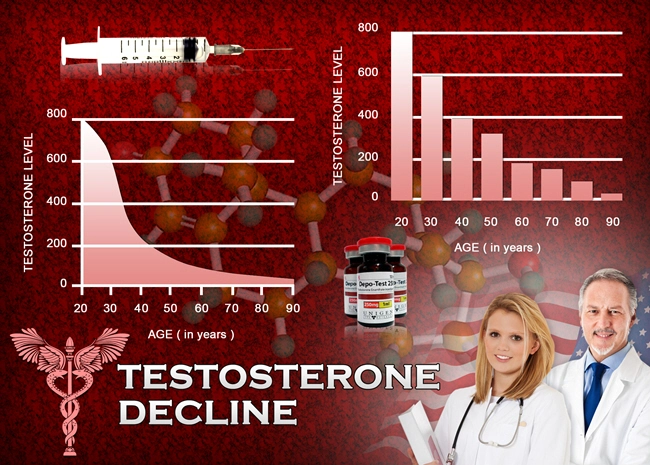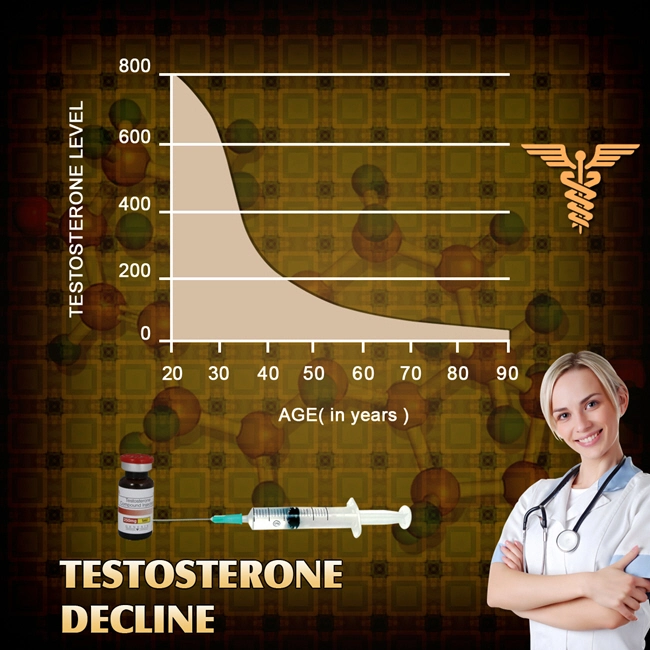
Introduction
Testosterone undecanoate, a long-acting injectable form of testosterone, has become a popular choice for testosterone replacement therapy among American males suffering from hypogonadism. While its benefits in improving muscle mass, bone density, and overall well-being are well-documented, concerns regarding its impact on liver health have prompted further investigation. This article delves into the current understanding of how testosterone undecanoate affects liver function in American men, aiming to provide a comprehensive overview for healthcare professionals and patients alike.
Understanding Testosterone Undecanoate
Testosterone undecanoate is an esterified form of testosterone designed for prolonged release, administered typically every 10 to 14 weeks. Unlike oral testosterone formulations, which are known to exert a significant burden on the liver due to first-pass metabolism, testosterone undecanoate bypasses the liver, theoretically reducing the risk of hepatotoxicity. This aspect makes it a preferred choice for many clinicians and patients concerned about liver health.
Liver Health and Testosterone Therapy
The liver plays a crucial role in metabolizing hormones, including testosterone. Oral anabolic steroids and some testosterone formulations have been associated with liver toxicity, including cholestasis, peliosis hepatis, and even hepatocellular carcinoma. However, the impact of testosterone undecanoate on liver health appears to be less pronounced. Studies have shown that injectable testosterone undecanoate does not significantly alter liver enzyme levels, such as alanine aminotransferase (ALT) and aspartate aminotransferase (AST), which are markers of liver function.
Clinical Studies and Findings
Several clinical trials have investigated the effects of testosterone undecanoate on liver health. A notable study published in the *Journal of Clinical Endocrinology & Metabolism* found no significant changes in liver enzyme levels in men treated with testosterone undecanoate over a 12-month period. Another study in the *European Journal of Endocrinology* reported similar findings, with no evidence of liver toxicity in patients receiving long-term testosterone undecanoate therapy.
Monitoring and Safety Considerations
Despite the reassuring data, monitoring liver function remains a critical aspect of testosterone replacement therapy. Regular blood tests to assess liver enzyme levels are recommended, particularly in patients with pre-existing liver conditions or those at higher risk of liver disease. Additionally, healthcare providers should be vigilant for any signs of liver dysfunction, such as jaundice, abdominal pain, or unexplained fatigue, and adjust treatment accordingly.
Patient Education and Awareness
Educating patients about the potential risks and benefits of testosterone undecanoate is essential. Men should be informed that while the risk of liver toxicity is low, it is not entirely absent. Encouraging a healthy lifestyle, including maintaining a balanced diet, regular exercise, and avoiding excessive alcohol consumption, can further mitigate any potential adverse effects on liver health.
Conclusion
In conclusion, testosterone undecanoate appears to have a favorable safety profile regarding liver health in American males. The available evidence suggests that it does not significantly impact liver function, making it a suitable option for testosterone replacement therapy. However, ongoing monitoring and patient education are crucial to ensure the safe and effective use of this treatment. As research continues to evolve, healthcare providers must stay informed and adapt their practices to provide the best possible care for their patients.
References
1. *Journal of Clinical Endocrinology & Metabolism*. "Long-term effects of testosterone undecanoate on liver function in hypogonadal men."
2. *European Journal of Endocrinology*. "Safety and efficacy of testosterone undecanoate in the treatment of male hypogonadism: A comprehensive review."
This article provides a detailed examination of the impact of testosterone undecanoate on liver health, offering valuable insights for American males considering or currently undergoing testosterone replacement therapy.
Contact Us Today For A Free Consultation
Dear Patient,
Once you have completing the above contact form, for security purposes and confirmation, please confirm your information by calling us.
Please call now: 1-800-380-5339.
Welcoming You To Our Clinic, Professor Tom Henderson.

- Testosterone Undecanoate: Enhancing Athletic Performance in American Males [Last Updated On: February 21st, 2025] [Originally Added On: February 21st, 2025]
- Testosterone Undecanoate: Benefits and Risks for American Men's Health [Last Updated On: March 17th, 2025] [Originally Added On: March 17th, 2025]
- Testosterone Undecanoate: A Breakthrough in Andropause Treatment for American Men [Last Updated On: March 17th, 2025] [Originally Added On: March 17th, 2025]
- Optimizing Testosterone Undecanoate Therapy with Diet and Exercise for American Men [Last Updated On: March 18th, 2025] [Originally Added On: March 18th, 2025]
- Testosterone Undecanoate: A Promising Treatment for Chronic Fatigue in American Men [Last Updated On: March 18th, 2025] [Originally Added On: March 18th, 2025]
- Testosterone Undecanoate: Balancing Medical Needs and Cultural Expectations in American Males [Last Updated On: March 19th, 2025] [Originally Added On: March 19th, 2025]
- Testosterone Undecanoate Improves Sleep Quality in American Males with Hypogonadism [Last Updated On: March 20th, 2025] [Originally Added On: March 20th, 2025]
- Testosterone Undecanoate Therapy: Importance of Regular Monitoring for American Men [Last Updated On: March 20th, 2025] [Originally Added On: March 20th, 2025]
- Testosterone Undecanoate: Long-Acting Treatment for Hypogonadism in American Males [Last Updated On: March 21st, 2025] [Originally Added On: March 21st, 2025]
- Testosterone Undecanoate: A Solution for Muscle Loss in Aging American Males [Last Updated On: March 21st, 2025] [Originally Added On: March 21st, 2025]
- Testosterone Undecanoate: A Promising Tool for Weight Management in American Men [Last Updated On: March 21st, 2025] [Originally Added On: March 21st, 2025]
- Testosterone Undecanoate: Safety, Efficacy, and Management in American Men with Hypogonadism [Last Updated On: March 22nd, 2025] [Originally Added On: March 22nd, 2025]
- Testosterone Undecanoate: Effects on Hair Growth in American Males with Hypogonadism [Last Updated On: March 22nd, 2025] [Originally Added On: March 22nd, 2025]
- Testosterone Undecanoate: Enhancing Health and Vitality in American Men [Last Updated On: March 22nd, 2025] [Originally Added On: March 22nd, 2025]
- Testosterone Undecanoate: Impacts on Skin Health in American Males [Last Updated On: March 22nd, 2025] [Originally Added On: March 22nd, 2025]
- Testosterone Undecanoate: Enhancing Cognitive Function in American Men with Hypogonadism [Last Updated On: March 23rd, 2025] [Originally Added On: March 23rd, 2025]
- Testosterone Undecanoate Efficacy and Safety in American Males: Clinical Trial Review [Last Updated On: March 23rd, 2025] [Originally Added On: March 23rd, 2025]
- Testosterone Undecanoate's Impact on Joint Health in American Men: Benefits and Risks [Last Updated On: March 23rd, 2025] [Originally Added On: March 23rd, 2025]
- Testosterone Undecanoate's Impact on Immune Function in American Males: A Comprehensive Review [Last Updated On: March 23rd, 2025] [Originally Added On: March 23rd, 2025]
- Testosterone Undecanoate's Impact on Vision: Benefits and Risks for American Men [Last Updated On: March 24th, 2025] [Originally Added On: March 24th, 2025]
- Testosterone Undecanoate: A Promising Treatment for Osteoporosis in American Men [Last Updated On: March 24th, 2025] [Originally Added On: March 24th, 2025]
- Testosterone Undecanoate's Impact on Respiratory Health in American Men with Hypogonadism [Last Updated On: March 24th, 2025] [Originally Added On: March 24th, 2025]
- Testosterone Undecanoate: Enhancing Metabolic Health in American Males with Hypogonadism [Last Updated On: March 24th, 2025] [Originally Added On: March 24th, 2025]
- Testosterone Undecanoate's Impact on Dental Health in American Males: A Review [Last Updated On: March 24th, 2025] [Originally Added On: March 24th, 2025]
- Testosterone Undecanoate's Impact on Cholesterol Levels in American Men: A Comprehensive Review [Last Updated On: March 24th, 2025] [Originally Added On: March 24th, 2025]
- Testosterone Undecanoate: Dispelling Myths and Enhancing Men's Health [Last Updated On: March 24th, 2025] [Originally Added On: March 24th, 2025]
- Testosterone Undecanoate: Tailoring TRT for Diverse American Male Demographics [Last Updated On: March 24th, 2025] [Originally Added On: March 24th, 2025]
- Testosterone Undecanoate's Impact on Digestive Health in American Males: Insights and Management [Last Updated On: March 24th, 2025] [Originally Added On: March 24th, 2025]
- Economic Impact of Testosterone Undecanoate on Healthcare Costs for American Men with Hypogonadism [Last Updated On: March 25th, 2025] [Originally Added On: March 25th, 2025]
- Testosterone Undecanoate: Impacts on Longevity and Male Health [Last Updated On: March 26th, 2025] [Originally Added On: March 26th, 2025]
- Testosterone Undecanoate: Enhancing Injury Recovery in American Males [Last Updated On: March 26th, 2025] [Originally Added On: March 26th, 2025]
- Testosterone Undecanoate: Enhancing Fertility in American Men with Hypogonadism [Last Updated On: March 26th, 2025] [Originally Added On: March 26th, 2025]
- Testosterone Undecanoate: Enhancing Emotional Well-being in American Males [Last Updated On: March 26th, 2025] [Originally Added On: March 26th, 2025]
- Testosterone Undecanoate Enhances Cognitive Function in American Men: Research and Implications [Last Updated On: March 26th, 2025] [Originally Added On: March 26th, 2025]
- Testosterone Undecanoate: Enhancing Life Quality in American Male Cancer Survivors [Last Updated On: March 26th, 2025] [Originally Added On: March 26th, 2025]
- Testosterone Undecanoate: A Promising Therapy for Chronic Pain in American Males [Last Updated On: March 26th, 2025] [Originally Added On: March 26th, 2025]
- Testosterone Undecanoate: Benefits, Side Effects, and Management Strategies for American Men [Last Updated On: March 26th, 2025] [Originally Added On: March 26th, 2025]
- Testosterone Undecanoate: Benefits and Management for American Men with Hypogonadism [Last Updated On: March 27th, 2025] [Originally Added On: March 27th, 2025]
- Testosterone Undecanoate's Impact on Blood Pressure in American Men: A Comprehensive Review [Last Updated On: March 27th, 2025] [Originally Added On: March 27th, 2025]
- Testosterone Undecanoate: Enhancing Sexual Health in American Men with Low Testosterone [Last Updated On: March 27th, 2025] [Originally Added On: March 27th, 2025]
- Testosterone Undecanoate Boosts Endurance in American Men: Mechanisms and Benefits [Last Updated On: March 27th, 2025] [Originally Added On: March 27th, 2025]
- Testosterone Undecanoate: A Promising Therapy for Diabetes Management in American Males [Last Updated On: March 27th, 2025] [Originally Added On: March 27th, 2025]
- Testosterone Undecanoate: A Promising Treatment for Allergies in American Males [Last Updated On: March 27th, 2025] [Originally Added On: March 27th, 2025]
- Testosterone Undecanoate: Managing Stress in American Males [Last Updated On: March 28th, 2025] [Originally Added On: March 28th, 2025]
- Testosterone Undecanoate's Impact on Kidney Health in American Men: A Comprehensive Review [Last Updated On: March 28th, 2025] [Originally Added On: March 28th, 2025]
- Testosterone Undecanoate: Enhancing Veterans' Health with Long-Acting Therapy [Last Updated On: March 28th, 2025] [Originally Added On: March 28th, 2025]
- Testosterone Undecanoate's Impact on Hearing in American Males: A New Frontier in Hormone Therapy [Last Updated On: March 28th, 2025] [Originally Added On: March 28th, 2025]
- Testosterone Undecanoate Enhances Nail Health in American Males: A Comprehensive Study [Last Updated On: March 29th, 2025] [Originally Added On: March 29th, 2025]
- Testosterone Undecanoate: Dosage Adjustments for American Men's Optimal Hormone Levels [Last Updated On: March 30th, 2025] [Originally Added On: March 30th, 2025]
- Testosterone Undecanoate Enhances Skin Elasticity in American Men: A Comprehensive Review [Last Updated On: March 31st, 2025] [Originally Added On: March 31st, 2025]









